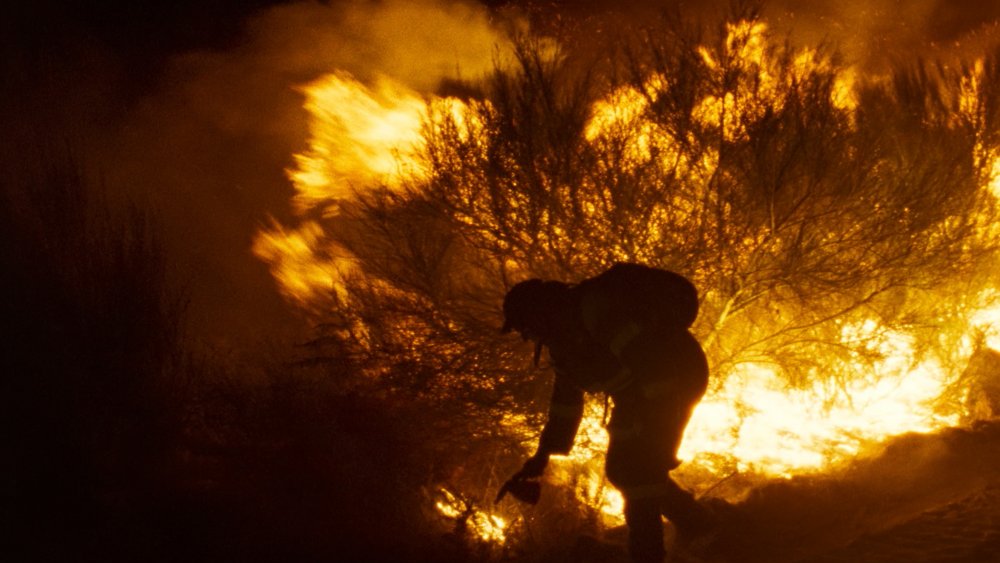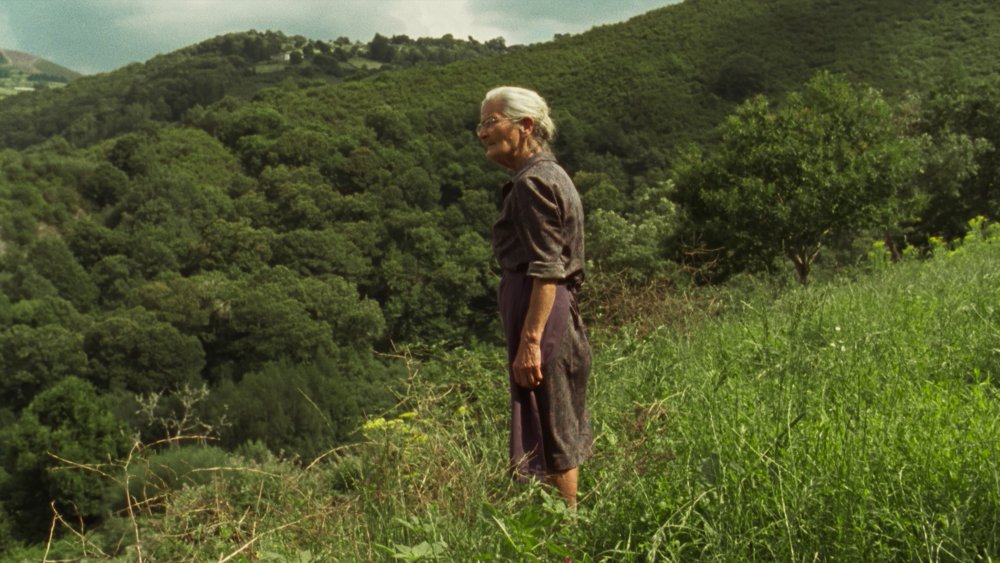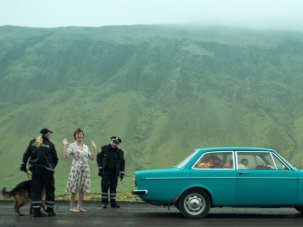The allure of the Galician landscape in rain, sun and ashes is both backdrop and true backbone to Oliver Laxe’s third feature-length film and first to be shot in Spain, which thus functions as two tender homecomings in one. Yet this pared-down tale of a man accused returning to live with his mother in rural seclusion, for all the virtues of its mist-wreathed vistas, clinking cowbells and shrewd, unobtrusive observations, is perhaps slender to a fault, though sparks do eventually fly.
Spain/France/Luxembourg 2019
1hr 25mins
Director Oliver Laxe
Cast
Amador Amador Arias
Benedicta Benedicta Sánchez
Inazio Abrao
Elena Fernández
David de Poso
Alvaro de Bazal
[1.85 : 1]
Original Galician title O que arde
► Extract
Upon his release from prison for alleged arson, the taciturn, fortysomething Amador has seemingly nowhere to go but his home village in the depths of the Galician countryside, where his elderly mother Benedicta still lives. She receives him without either question or fuss, before the pair sink back into what was presumably their everyday existence before he left: toasting bread on the stove in silence for breakfast, taking care of the homestead and the surrounding land, dog in tow, tending to the three cows.
Nearby, a group of men are renovating a tumbledown house in the hope of converting it into holiday accommodation and Benedicta suggests to them that Amador could work alongside them. That it doesn’t come to pass could equally be an indication of their resentment, his unwillingness or both, although one of them later comments that he’s simply a decent man fallen on hard times, albeit without further explanation.

The only time Amador connects with anyone aside from his mother is the vet that helps out when one of the cows gets stuck in the mud, although his response to her gentle advances is still fairly muted. She’s also one of the few to have returned to the region at a time when most of those arriving are likely to be tourists, even if the only visible interlopers are the non-indigenous eucalyptus trees that thrive here, despite efforts to cull them via bulldozer as seen in the film’s astounding opening sequence, all shivering boughs and crashing timber against the night sky.
Yet the landscape seems remarkably unconcerned by these various tensions, its winding lanes, ragged pastures, rolling hills and thick forest in countless shades of green only varying according to the level of sun and precipitation; although the film presumably starts in spring and ends in late summer, ascertaining the precise moment when the season has changed is impossible, as if time itself functions differently here. With the help of talented cinematographer Mauro Herce, shooting on celluloid, Laxe creates a portrait of this place and its sounds, textures and shifts in light that seeks to envelop more than anything, to convey to the viewer a similar sensation to what Benedicta must feel when she takes shelter from the rain inside a hollow tree, a body fully absorbed by its surroundings.
This immersion is often achieved so successfully that the plot placed within it eventually feels almost like an afterthought by comparison. While the questions of Amador’s guilt and responsibility and to what they precisely extend are kept open enough to generate a constant underlying tension, this tidy ambiguity is invariably dwarfed by that inherent to the landscape, not least once the promise of the title does indeed come to pass. The resultant images of ash and flame derive their power and ambivalence from the fact they have necessarily been captured first hand, exuding an inescapable documentary force that inevitably puts all fiction to shame, even if the ending is the same for both: once fire takes hold, it swallows up everything.
-
The Digital Edition and Archive quick link
Log in here to your digital edition and archive subscription, take a look at the packages on offer and buy a subscription.











